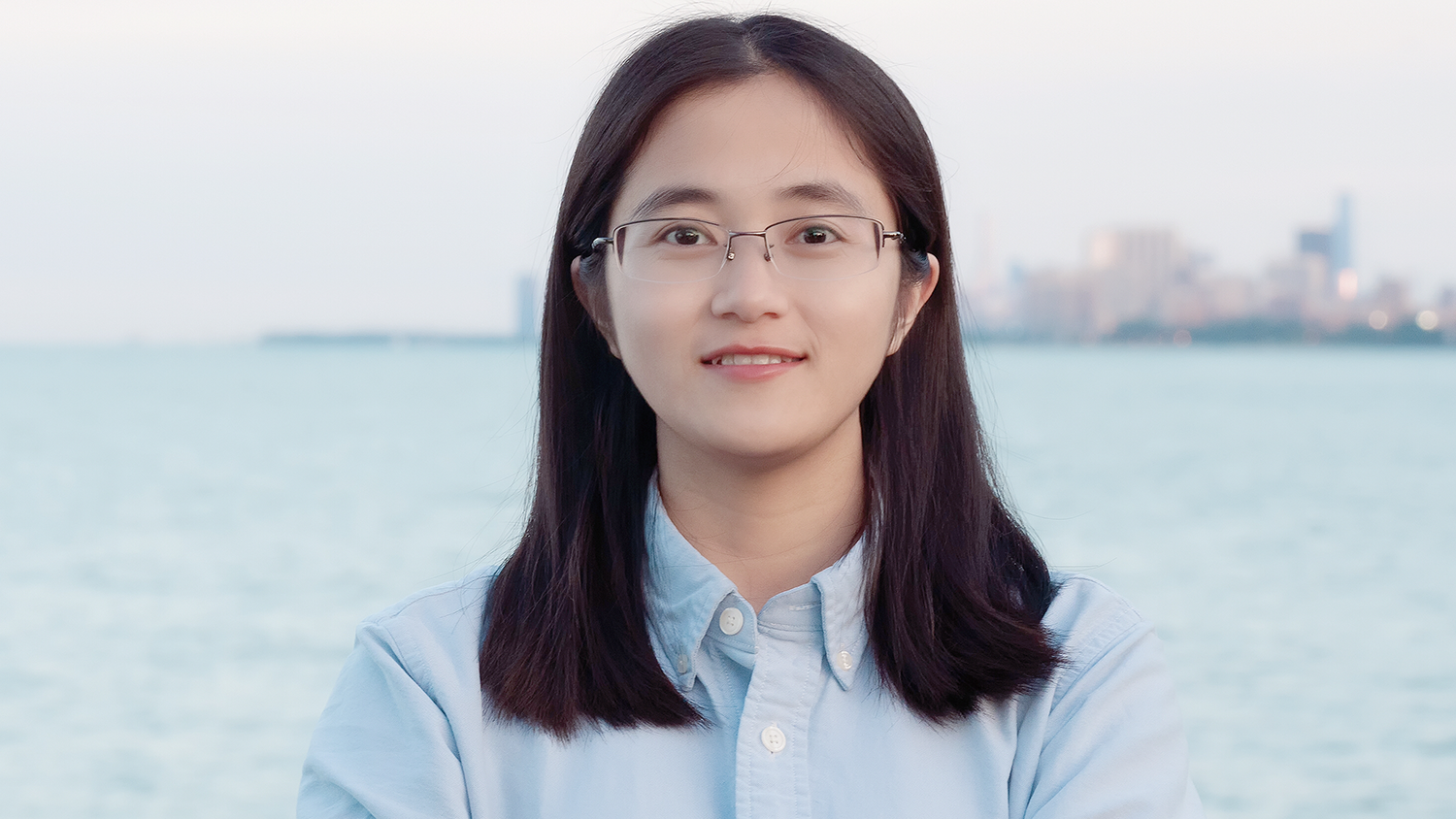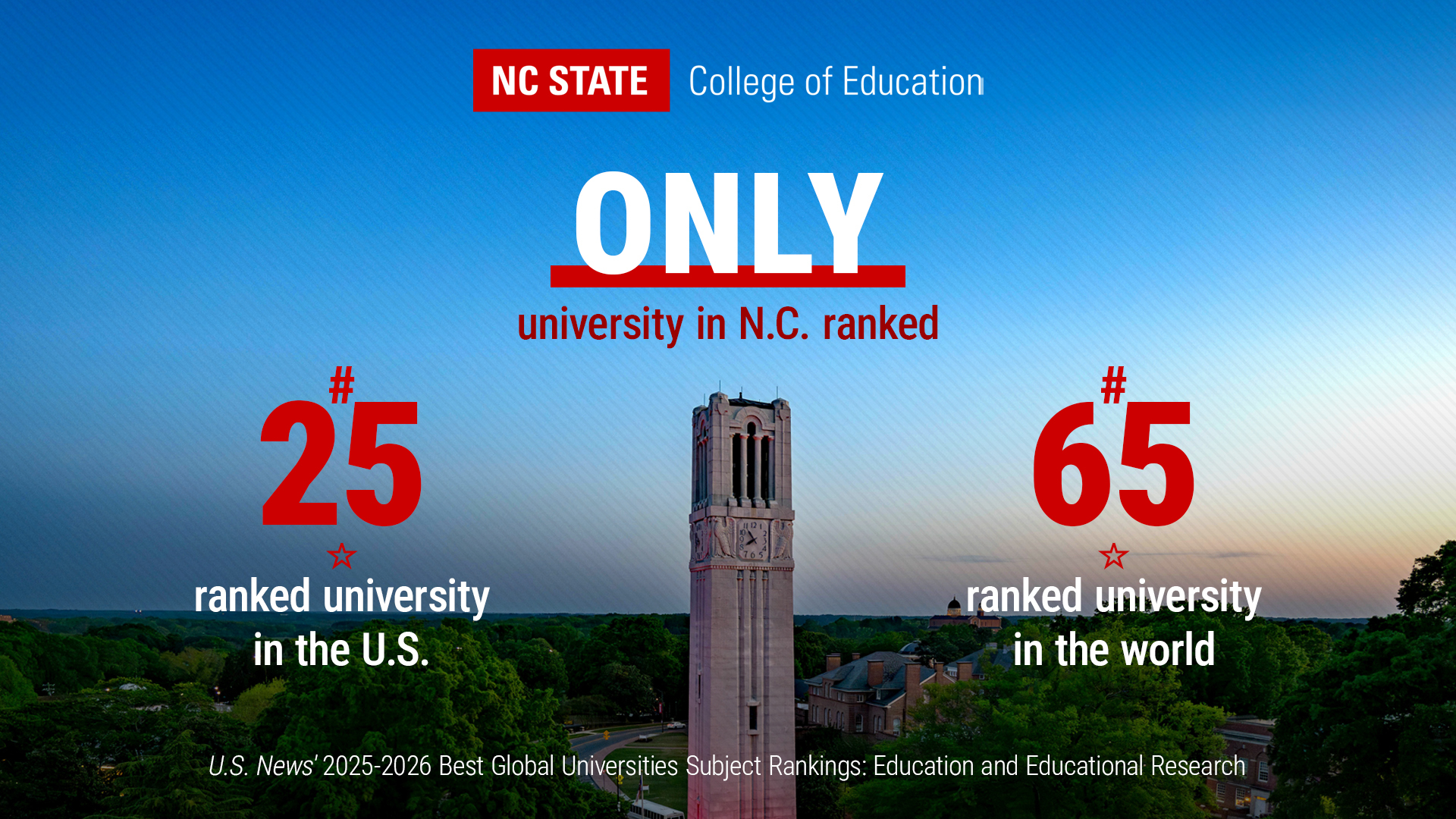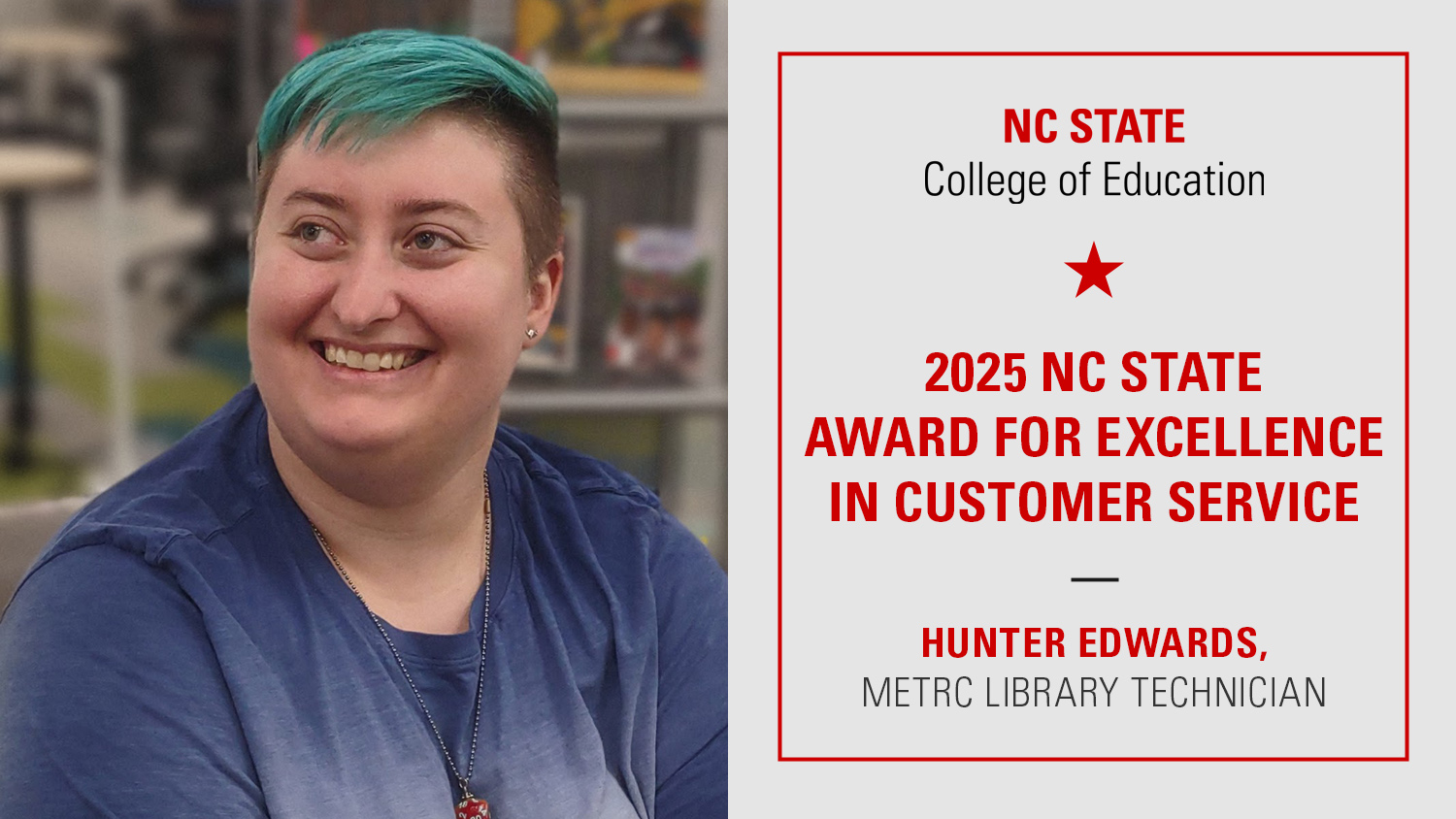Assistant Professor Shiyan Jiang Selected as NC State Goodnight Early Career Innovator

Shiyan Jiang, an assistant professor of learning design and technology in the NC State College of Education, has been selected to join the 2021-22 class of NC State’s Goodnight Early Career Innovators.
The Goodnight Early Career Innovators Awards support early career faculty excellence and promote retention of tenure-track assistant professors whose scholarship focuses on STEM or STEM education. Recipients of the award show outstanding promise for future achievement or impact in STEM, demonstrate superior scholarly achievement at an early career stage and have a rigorous research agenda that speaks to their potential to advance knowledge in STEM or STEM education.
“It means a tremendous amount to receive this award. As an early-career scholar dedicated to technology-enhanced STEM education and promoting accessible data science learning experience, the continued support from this award will help me advance my research in this area,” Jiang said. “NC State provides rich opportunities and a solid foundation for interdisciplinary collaboration.”
Jiang’s research focuses on integrating digital literacy in STEM learning, including empowering K-12 artificial intelligence (AI) education. She also designs and studies technology-enhanced learning environments that facilitate the development of STEM identities and engage adolescents in career exploration.
Jiang said she believes multi-modal composition, a digital literacy practice in which people use different modes to make meaning and represent ideas, is particularly engaging for students and holds the promise of broadening access in STEM education.
“Adolescents are used to expressing themselves and connecting with others through multimodal composing. They often create and share multimodal artifacts, such as YouTube videos, personal blogs and video games. Students who were disengaged from school could be popular composers outside of school,” she said. “As the current generation of students grows up with increasing experience in consuming and creating digital products, STEM education needs to embrace this experience to enrich and support student learning.”
Since 2020, Jiang has been engaging students in STEM learning through her work on the “Narrative Modeling with StoryQ: Integrating Mathematics, Language Arts, and Computing to Create Pathways to Artificial Intelligence Careers” project, which helps high school students explore and understand artificial intelligence technology.
She and the project team developed the StoryQ curriculum and technology to support student learning of the working mechanisms of AI technologies and the critical evaluation of decisions made by computers. Designed for use in English language arts classrooms and adopted by teachers in North Carolina, Maryland and Massachusetts, StoryQ requires students to reason about language use in diverse contexts as they create an AI model for classifying texts.
“We purposely designed the curriculum and technology to be attractive to ELA classrooms to reach students who might not be interested in computing concepts and practices like AI,” Jiang said. “Our preliminary findings showed that students leveraged their unique cultural backgrounds as a resource for learning when building AI models using the text data. Their rich and diverse backgrounds set the foundation for understanding how intelligence is created, how it is applied, and its potential to perpetuate biases and unfairness.”
In addition to her work on the StoryQ project, Jiang is also helping to broaden access to data science practices through her work on two other projects.
Through the LASER Institute, early and mid-career STEM education researchers in learning analytics or educational data science receive professional development aimed at increasing their capacity to improve STEM learning through new data sources and powerful analytical approaches.
The institute largely served scholars from historically underrepresented groups and minority-serving institutions, Jiang said, and led to the development of a graduate certificate in learning analytics within the College of Education.
In addition, she is part of the “Be the Dataset” project, which brings data science learning opportunities to undergraduate courses that are not data intensive by engaging students in exploring self-motion data. As an extension of this work, she is currently working with the Data Science Academy at NC State to create data science learning opportunities for students of all majors.
As she joins the current class of Goodnight Early Career Innovators, Jiang said she hopes to continue to conduct rigorous STEM education research and to connect with more North Carolina schools to turn research into practice.
“I strive for national and international excellence in research and practice,” she said.
- Categories:


